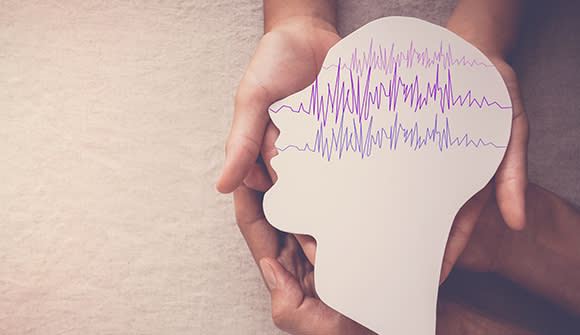Disney star’s passing highlights epilepsy risks
What parents and teens should know about managing and living with the condition.
Article Author: Katie McPherson
Article Date:

In early July, 20-year-old actor Cameron Boyce passed away at home in his sleep. The news shocked fans who grew to love him in his roles on Disney Channel's Jessie and Descendants, and HBO’s Mrs. Fletcher. His family later confirmed Boyce’s passing was caused by an epileptic seizure; he had lived with the condition for years.
Is death due to epilepsy common?
Parents of children and teens with epilepsy may feel shocked to see epilepsy and death connected in major headlines. Harry Abram, MD, a pediatric neurologist Nemours Children’s Health, Jacksonville, and at Wolfson Children’s Hospital, cares for pediatric patients with epilepsy each day. He said he understands why parents and teens may be distressed following this news.
“Epilepsy can be a very unsettling condition; it’s not always well understood why children have seizures. The issue of death with epilepsy is well recognized,” Dr. Abram explains. “It’s very rare: in children, it’s about 1 in 1,000 to 1 in 5,000 per year.”
Dr. Abram said, “I don’t know much about Cameron Boyce other than what has been in the news, but he appears to have been a healthy young man. I don’t know the specifics of his epilepsy or how it was treated. Children who die of epilepsy usually have other severe neurologic problems, like a genetic disorder or cerebral palsy. For a healthy, well-appearing young person to die is certainly very rare.”
How can a seizure lead to death?
It’s biologically difficult to determine why seizures sometimes cause the worst. However, waking up from or falling asleep is known to pose more risk for seizure sufferers.
“When you’re asleep, particularly falling asleep and waking up, the seizure threshold is lower so that is a common time to have a seizure,” Dr. Abram said. “In this case, it seems sudden, unexpected and unexplained. With epilepsy patients, it’s not death due to drowning or a car accident. When they do an autopsy, there’s no cause found. It’s believed that seizures cause a reflex for the heart to stop beating or the lungs to stop breathing.”
How can you protect your child?
Dr. Abram explained that seizures are most often triggered by not taking one’s medication. They can also come on due to a fever or lack of sleep. Dr. Abram says the best thing children and teens with epilepsy can do is follow their care plan to a T, and parents should enforce this.
Taking precautions in other areas of daily life can prevent injury, too. For example, Dr. Abram often sees patients hurt in pools or bathrooms, so supervision is key.
“If you’re concerned or have questions, certainly talk to your doctor. You should take your medicines. Oftentimes parents and teenagers want to stop their medicines to see if they need it, but never stop your medicines without talking to your doctor. We prefer for patients to sleep on their back instead of face down so that after a seizure, when the body can be very limp, you’re not face down in a pillow. We do recommend, depending on the age of the child, that a parent or older sibling be in the room with the child while they’re sleeping. Or, some parents use a baby monitor.”
Ultimately, parents should seek a neurologist who can understand their child’s epilepsy and develop a care plan that helps manage it — while still letting them be a kid.
“We try to balance out this rare risk of death versus providing a normal childhood,” he explains. “We try to put epilepsy in the context of the child’s overall health and allow them to have a normal childhood that includes things like sleepovers and sports.”
Wolfson Children’s Hospital is ranked by U.S. News &World Report among the top 50 hospitals in the nation for pediatric neurology & neurosurgery, and is home to the level 4 Pediatric Epilepsy Center (Level 4 designation is the highest level awarded by the National Association of Epilepsy Centers). If your child is experiencing symptoms of epilepsy, talk to your pediatrician or call Nemours Children's at 904.697.3600.



